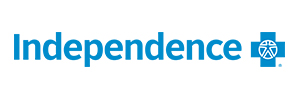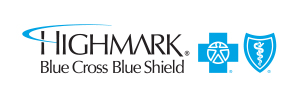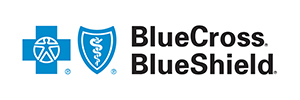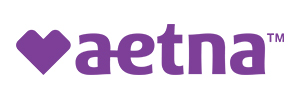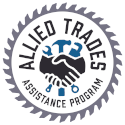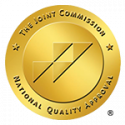Substance Use Disorder is a serious disease that can affect almost every aspect of an individual’s life: social, occupational, legal, and educational. Substance Use Disorder, also known as addiction, is a disease that affects a person’s brain and behaviors and leads to an inability to control the use of substances. Individuals that are afflicted with a Substance Use Disorder may try to hide it from others. Refusal to recognize a Substance Use Disorder, both on the part of individuals and their loved ones is one of the top reasons that this serious condition goes untreated. According to SAMSHA in 2017, an estimated 20.7 million people age 12 and older needed treatment for a Substance Use Disorder. Only 4 million individuals received treatment or 19% of those who required treatment.
Understanding the Warning Signs of a Substance Use Disorder
Substance Use Disorder is a disease with a range of harmful conditions and behaviors. An individual with a Substance Use Disorder finds it difficult to control the use of their drug of choice. The individual will continue using while engaging in addictive behavior even though they might be aware of harm or danger caused by their disease. Recognizing early warning signs can help an individual receive the treatment they need. The warning signs may vary from individual, substance of choice, their family history, and / or personal circumstances.
Substance Use Disorder has a range of psychological, physical, and social symptoms that can drastically reduce an individuals quality of life. The symptoms mentioned below can help a family identify whether a loved one is in need of treatment. Often times, these symptoms will overlap each other. For example, they may alter from experiencing depression to decrease in diet.
Psychological Symptoms
- Inability to stop use
- Dealing with conflict
- Obsession
- Engaging in risky behavior
- Rapidly shifting moods
- Changes in sleep schedule
- Changes in eating habits (eating more or less than usual).
Social Symptoms
- Dropping hobbies, activities, or commitments
- Isolation
- Denial
- Inability to connect with emotions
- Neglecting family obligations and financial issues
Physical Symptoms
- Withdrawal Symptoms
- Damage or disease from use
- Change in appearance
- Increasing tolerance of substance(s)
- Continuing to use drugs or alcohol despite declining physical health
An individual might experience a few of these symptoms or many of them. A Substance Use Disorder can have a drastically different impact on each individual. Oftentimes, families can struggle to identify if a loved one is struggling with abusing alcohol or drug. The behavior may have gone unnoticed or misrecognized early on. The accurately confirm whether an individual is struggling with an addiction is with the guidance of a medical professional. A medical professional can complete a medical and physical evaluation. The evaluation can be used to best determine what treatment is required for the specific individual.
If you have identified that a loved one is experiencing one or more of the symptoms mentioned, the best thing you can do is help them get treatment. Our Treatment Advocates at Sobriety Solutions can help provide treatment options based on the individual’s needs.
You have identified symptoms of a Substance Use Disorder – Now What?
First, the most important thing is to realize your loved one and family is not alone in this fight. This epidemic has swept across our nation affecting more than 20 million individuals. Resources are available for the families affected such as Nar-Anon, Al-Anon, and Family Support Groups that can help you process what your loved one is struggling with. These groups also provide healthy ways to support them. Once you have identified your loved one is struggling with a Substance Use Disorder, there are some indicators to help determine whether they require treatment to overcome their disorder.
Individuals who can benefit from entering into an inpatient drug and alcohol treatment center will most likely have one of these characteristics:
- Requires medical treatment to treat life threatening withdrawal symptoms
- Acute mental health
- When an individual cannot stop using on their own accord despite negative consequences
- Drug use or alcohol use is interfering with social, occupational, legal, and educational
- TBI (high risk)
- Expressing desire for treatment or lifestyle change
Inpatient drug and alcohol treatment will focus on stabilizing the individual’s physical and mental health. During inpatient treatment, an individual will learn about recovery and the support available.
What is An Inpatient Drug and Alcohol Treatment Center?
Drug and alcohol treatment also commonly referred to as drug treatment or alcohol treatment is available for those who desire help. Drug and alcohol treatment have multiple levels of care to meet an individual where they are. The highest level of drug and alcohol treatment is inpatient (residential) treatment and typically referred to as “rehab”. Typically, drug and alcohol inpatient treatment programs offer medical detox services.
Drug and alcohol treatment will begin with an evaluation of the individual that is seeking help. The evaluation will allow the treatment program to have a better understanding of the individual’s specific situation and needs. In the inpatient setting, the evaluation will help to determine the individual’s medical health, mental health, and use history in order to create an individualized treatment plan. With consent from the individual, the treatment team may also reach out to family members to gain insight on the family dynamic. During drug and alcohol treatment in a rehab setting, you will find most programs take a team approach to treat the person as a whole rather than segmented areas.
During treatment, an individual may find the following members a part of their treatment team:
- Physicians
- Nurses
- Psychiatrists
- Licensed Family Therapists
- Licensed Addiction Counselors
- Nutritionists
- Case Managers
What Can You Expect in Inpatient Drug and Alcohol Treatment?
Detox is the first step in healing the individual from the drug and alcohol use in drug and alcohol treatment. The detox starts with evaluations by a medical team to determine which level of medical intervention is required. An individual being detoxed in a drug and alcohol treatment setting will be medically monitored 24/7 until your treatment team determines you are stable enough to move to residential treatment and engage in more programming. Once an individual’s medical symptoms are treated, an individual will begin therapy in the residential setting.
During their stay at an inpatient residential program an individual can expect to be able to interact with the treatment community and participate in therapy, activities, and ancillary services offered.
During drug and alcohol treatment, an individual may experience the following services:
- Group Therapy
- Individual Therapy and Evaluations
- Mental Health Evaluation and Therapy
- Medical Treatment
- Wellness Activities
- Exercise
- Family Programing
- Nutritional Care
- Drug and Alcohol Treatment Education
- Case Management Services
- Continuing Care Planning
Effective drug and alcohol therapy will include multiple types of counseling such as individual counseling, group counseling, and family counseling. Individual counseling for drug treatment may include setting goals, identifying barriers, ways to work through challenges, and celebrating progress. Drug and alcohol treatment centers will provide evidence-based therapy which has proven to help others recover from addiction. Various methods of evidence-based approaches may be used in drug and alcohol treatment centers. Some of the more widely used methods are:
- Dialectical Behavioral Therapy (DBT) is an evidence-based treatment approach for opioid drug treatment as it has proven effective to treat individuals with substance abuse. This drug treatment approach is used help in individual shift responses to situations so the individual could process and rationalize their decision making.
- Cognitive-Behavioral Therapy (CBT) is an evidenced-based treatment approach for opioid drug treatment as it has proven to help individuals to identify and correct problematic behaviors by applying a variety of skills that be used to stop the drug use and address the underlying issues.
- Community Reinforcement Approach (CRA) is an evidenced-based treatment approach for opioid drug treatment as proven effective for individuals seeking drug treatment. Community Reinforcement Approach uses a range of familial, social, and recreational factors to reinforce recovery as more rewarding than substance use.
What to Understand Before Discussing Whether a Loved One Needs Help
Treatment options are available for yourself or a loved one. Before deciding which treatment center would be best suited for yourself or your loved one, a discussion needs to occur. It is important to handle this conversation carefully in a way that will not cause confrontation. It is common for those abusing substances or alcohol to quickly become upset or defensive, so it is best to approach the conversation with care. It is only natural to be nervous to approach the conversation about a loved one entering into a drug treatment program because of the uncertainty of how they will react. However, the conversation could be life-changing and motivate them to enter treatment.
While approaching a loved one about entering a drug treatment program, you should try your best to display compassion and empathy while asking them to seek the help they need. There are also additional resources and tips which have proven effective for other families while attempting to seek help for their loved ones.
Some examples of resources you can utilize to assist a loved one who is ambivalent towards accepting drug treatment are listed below:
- Impact Letter – An impact letter is exactly what the letter implies: a letter to tell someone struggling with an addiction the impact their disease has on others.
- Setting Boundaries – A first step is for everyone – the revering addict or alcoholic, family members, and loves ones – to focus on establishing and maintain healthy boundaries in their interactions and communications with one another.
- Marriage and Family Therapy – Marriage and Family Therapy (MFT) is a form of psychotherapy that addresses the behaviors of all family members and the way these behaviors affect not only individual family members, but also relationships between family members and the family unit as a whole.
- Positive Reinforcement – In operant conditioning, positive reinforcement involves the addition of a reinforcing stimulus following a behavior that makes it more likely that the behavior will occur again in the future. When a favorable outcome, event, or reward occurs after an action, that particular response or behavior will be strengthened.
- Interventionist – Interventionist is an individual who helps identify the appropriate people in the life of a person who is experiencing substance use disorder, mental health, or behavioral health problems that will become an influential part of a recovery team. The team will enable their person and family to accept treatment and recovery.
If you think that someone you love is addicted to a substance or alcohol, it is important to handle the situation carefully. A variety of drug treatment centers and therapeutic approaches exist to best match the specific needs of each individual. Whether you are looking for inpatient or outpatient treatment, there are many options out there for anyone looking to take their life back from addiction. If you would like to learn more about drug and alcohol treatment center options available, please contact a Treatment Advocate at Sobriety Solutions at (833)-880-HELP. Sobriety Solutions Treatment Advocates are available 24/7 and free of charge to provide treatment options.



